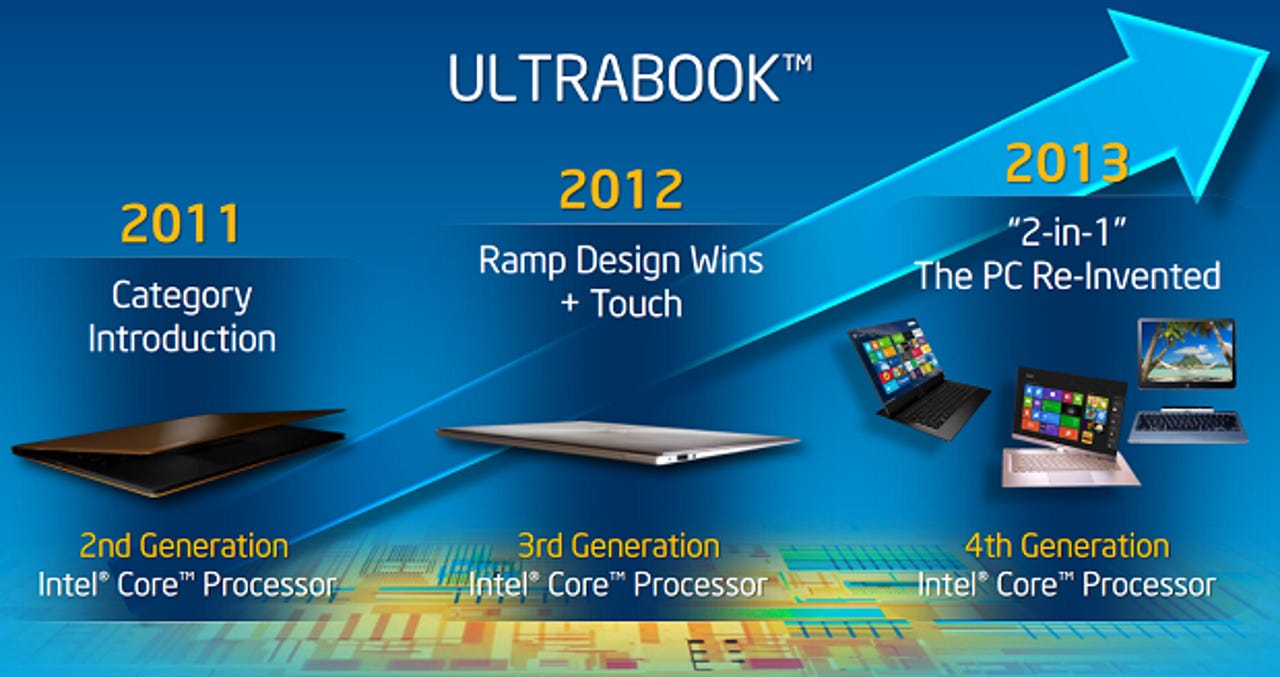Intel to gain from 'mini corporate refresh' of PCs

Intel was upgraded by a long-time skeptic of the chipmaker on hopes of a enterprise refresh cycle, some gains in Windows tablets and cost cutting.
This "upgrade," from Piper Jaffray analyst Auguste Gus Richard still had plenty of skepticism. First, Intel was upgraded to a neutral, a rating that's not exactly a ringing endorsement. Meanwhile, Richard's note was heavy on Intel's challenges.
He said:
The chip industry is now solidly in the post-PC era, but PCs are not going away anytime soon. We expect a modest corporate refresh cycle driven by the end of support for Windows XP in April 2014 coupled with the release of Windows 8.1 in Q4. In addition, with the 2H13 launch of Bay Trail, Intel now has a low-end processor for tablets with good enough performance for consumers. While this is likely to cannibalize sales of some notebooks, it would replace low-end consumer notebooks not high-end corporate machines. We lift our CY14 estimates slightly and expect 2014 revenue to grow in the mid-single digits after two years of decline.
Richard added that Intel may garner some optimism coming out of its Intel Developer Forum September 10-12.
Add it up and Intel likely has a decent second half coming up and Microsoft's move to end support for Windows XP will mean about 150 million to 250 million machines will be upgraded by corporations. In addition, Intel's Bay Trail processor is strong and gain market share in tablets.

Beyond April 2014 though, Intel's prognosis is tricky. Richard said that Intel's biggest issue will be the smartphone market. Without an LTE modem or ARM processor, Intel isn't likely to get traction.
Richard noted that Intel isn't doomed, but needs to make some bold moves. First, Intel should license ARM and perhaps buy Synopsys to become a direct-to-OEM foundry. Intel could also license its manufacturing technology to TSMC, who has to reverse engineer the chip giant's techniques anyway. If Intel licensed ARM it could offset Samsung's strength in chips, memory and displays and be welcomed by partners looking to diversify.
It's unclear whether Intel will do anything bold. Intel's analyst day Nov. 21 will be the coming out party for new CEO Brian Krzanich and his master plan for the company.